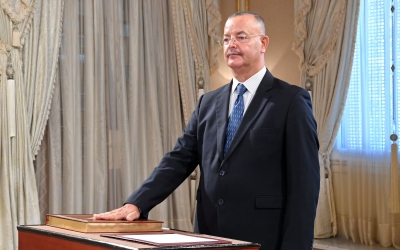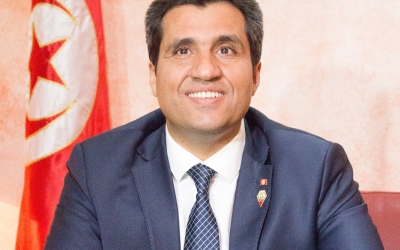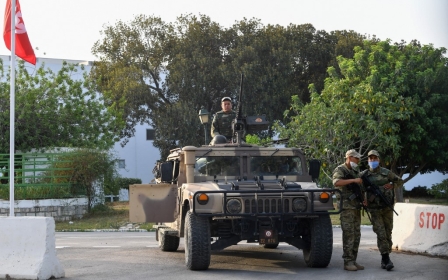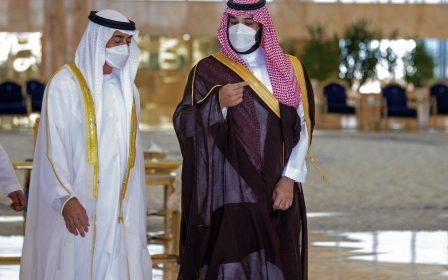Tunisia coup: UAE supports President Saied's 'positive agenda,' says official
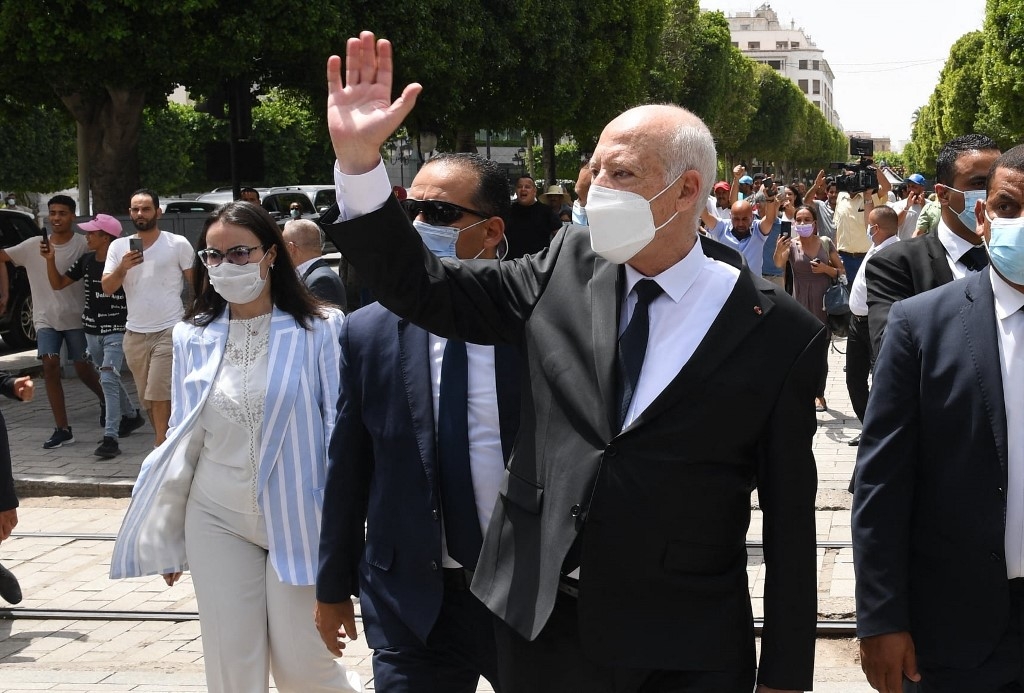
The United Arab Emirates supports Tunisian President Kais Saied's decision to freeze parliament and assume executive power, an adviser to the UAE president has said.
Anwar Gargesh, diplomatic adviser to UAE President Sheikh Khalifa Bin Zayed, met with President Saied on Saturday amid allegations that the Emirates played a role in the Tunisian leader's recent measures, which opponents have branded a coup.
New MEE newsletter: Jerusalem Dispatch
Sign up to get the latest insights and analysis on Israel-Palestine, alongside Turkey Unpacked and other MEE newsletters
"We support the Tunisian state and president in this positive agenda," Anwar Gargesh said after the meeting.
Saied froze parliament and dismissed the prime minister two weeks ago, and has since declared that there will be "no turning back" from the decision.
Despite pressure from the country's powerful labour union, as well as from both the United States and France, Saied has not named a new prime minister, announced any steps to end the emergency or declared his longer-term intentions.
Calls to investigate UAE and Saudi role
The UAE and Saudi Arabia have both been accused of supporting the Tunisian president in an attempt to establish a government friendly to their own ambitions.
Rached Ghannouchi, head of Ennahda, the biggest party in Tunisia's parliament and most vocal opponent of Saied's moves, has accused the UAE of being behind the "constitutional coup," an allegation the UAE has denied.
"I was not surprised by Mr Rashid Ghannouchi's... accusations against the Emirates. We have become accustomed to the use of the name of the Emirates by these authorities to justify local and structural shortcomings," Gargesh said last week. "My advice is to read the internal events of his country."
Last week, US Senator Chris Murphy called on the Biden administration to look into whether Saudi Arabia or the UAE played a role in assisting President Saied's efforts.
Abu Dhabi and Riyadh have both been highly critical of the Ennahda party, which formed a government after the 2011 revolution, as it has been described as an example of how political Islam and democracy could work together.
The 2011 revolution in Tunisia sparked what would be known as "the Arab Spring," which was seen as a major threat by the two Gulf powers, which sought to preserve authoritarian rule.
The governments of the UAE and Saudi Arabia also oppose Ennahda for its ties with Qatar and Turkey, regional foes.
Saudi Arabia's Foreign Minister Prince Faisal bin Farhan also met with President Saied last week to discuss ties between the two countries, reiterating the kingdom's support.
Middle East Eye delivers independent and unrivalled coverage and analysis of the Middle East, North Africa and beyond. To learn more about republishing this content and the associated fees, please fill out this form. More about MEE can be found here.


